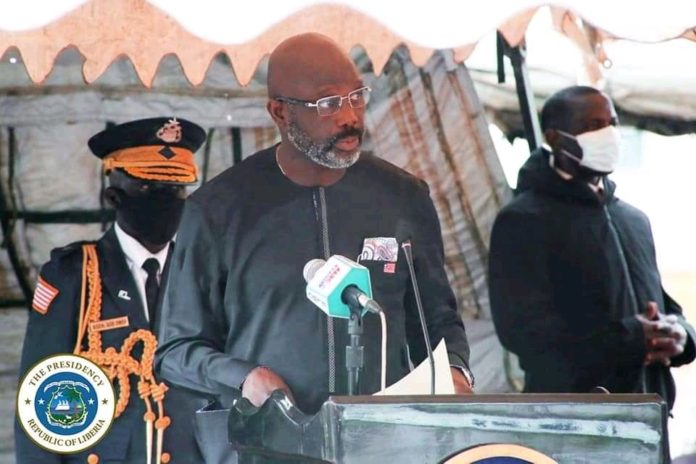President George Weah has endorsed ECOWAS’ decision to intervene militarily in Niger if General Abdourahmane Tchiani, the head of the powerful presidential guard fails to reinstate ousted President Mohamed Bazoum within a week.
Weah’s endorsement comes as he has been a vocal critic of the increase in coups in the sub-region and has repeatedly called on ECOWAS to act decisively to prevent the erosion of the region’s democratic gains.
Niger, which is a Western ally in the fight against terrorists in the Sahel, became the latest West African Country to witness a coup, which this time around was led by Tchiani, the head of the powerful presidential guard whose action has been endorsed by the Nigerien military.
At an ECOWAS emergency summit on Sunday in Nigeria, Liberia Foreign Minister, Dee-Maxwell Saah Kemayah, who represented the President, endorsed a communique that demanded that Bazoum be reinstated within a week, or the bloc would take “all measures” to restore constitutional order.
“In the event, the authority’s demands are not met within one week, [ECOWAS] will take all measures necessary to restore constitutional order in Niger,” the bloc said. “Such measures may include the use of force [and], to this effect, the chiefs of defense staff of ECOWAS are to meet immediately (which is this Sunday.)”
“[ECOWAS] rejects any forms of resignations that may purportedly come from President Bazoum,” it added.
However, ECOWAS did not make immediately clear how it could use force. But any military intervention would be in the region bloc right as the protocol on democracy and good governance, which was adopted in 200, explicitly recognizes ECOWAS right to intervene in member states in exceptional circumstances where democracy is under threat.
Article 1 of the protocol, among other things, boldly states that ECOWAS has “Zero tolerance for power obtained or maintained by unconstitutional means and strict adherence to democratic principles.”
The provision was established to prevent unconstitutional changes of government and protect democratic norms. The military coup as in the case of Niger now is a direct affront to the protocol.
International law would also support ECOWAS’s right to intervene militarily. Chapter VIII of the United Nations Charter explicitly provides for regional organizations to take collective action to address regional conflicts.
However, the presidential guard, which seized power last week after blocking Bazoum inside the palace in the capital, Niamey, has previously warned against foreign attempts to extract the president, saying it would result in bloodshed and chaos.
Tiani comments came just as ECOWAS demanded that Bazoum be reinstated within a week at an emergency summit in neighboring Nigeria.
Meanwhile, Chadian President Mahamat Idriss Deby visited Niamey on Sunday as an ECOWAS envoy and posted photos of separate meetings with Bazoum and Tchiani, the head of the presidential guard who has been named head of state.
Bazoum who has been toppled since Wednesday is one of a dwindling group of elected presidents and pro-Western leaders in the Sahel, where since 2020 an armed uprising has triggered coups in Mali and Burkina Faso.
Former colonial ruler France and the European Union have suspended security cooperation and financial aid to Niger following the coup, while the United States warned that its aid could also be at stake.
Landlocked Niger has had a turbulent political history since gaining independence in 1960. Before Wednesday, there had been four coups and numerous other attempts, including two previously against Bazoum.
ECOWAS has also imposed strict sanctions, including suspending all commercial and financial transactions between its member states and Niger and freezing assets in regional central banks.
Economic sanctions could have a deep impact on Niger, one of the world’s poorest countries which relies on imports from Nigeria for up to 90 percent of its power, according to the International Renewable Energy Agency.
Reporting by Liberian Observer






















